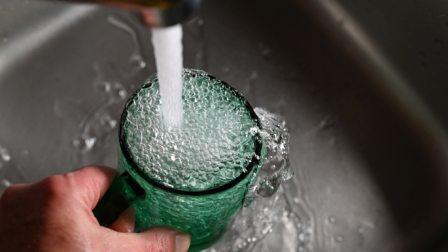Hidden Hazards in Water that Affect Your Home and Health
Note: As an Amazon Associate I earn from qualifying purchases.
Your home is meant to be a safe haven, and it’s only fitting that the air you breathe and the water you drink follow suit.
However, depending on your lifestyle and how old your home may be, these factors may have hidden health hazards that are invisible to the naked eye.
There are a few significant hazards you may think of that can affect your air quality, and more specifically your water quality in the home:
- Lead
- Asbestos
- Black Mold and other Molds
- Volatile Organic Compounds, or VOCs
- Carbon Monoxide
- Forever Chemicals, or PFAs
These examples can cause life-long health issues, ranging from increased allergies to chronic illness, and rare cancers. It’s no surprise that many home inspections require testing in these areas for renovations, but they are important to think about when it comes to your day-to-day routine as well.
If you are a private well-owner, it’s important to make sure you’re testing for these hazards, as well as cleanliness, even if it’s just once a year. If not, here are some things to note in order to focus on health and safety in your home.
Hidden Chemicals in the Home
PFAS and PFOS, better known as forever chemicals, are found often in the water we drink. They’re used to create certain products, a great example being Teflon non-stick pans.
The production runoff and disposal of waste during manufacturing can lead to contamination in the water systems in homes, including the drinking water.
In fact, forever chemicals have been around for what seems like just that: forever. Made to last, these chemicals take forever to break down; which means they stay in the body for a long time after consumption, even if you don’t realize it.
Similarly, chemicals like lead and asbestos lead to similar results, with health issues to follow.
VOCs are another example of a chemical that can be hiding in and outside of your home that can affect your health. These chemicals are often found near industrial buildings, and like forever chemicals, are a result of production.
VOCs can be found in dry cleaning agents, paint thinners, and can be a by-product of water treatment (chlorine). Because of this, it’s often found in groundwater as a contaminant and can become extremely hard to remove.
Your Health and Safety
While there are plenty of common water contaminants that may be in your home, the hidden ones can be the most dangerous. Based on where you live, the hazards could even be coming from unknown sources.
More often than not, your water quality isn’t directly affected by your home and what you do in your home. It’s usually a direct effect of outside factors, such as living near contaminated military bases or industrial areas, rainfall or natural disasters, along with production facilities.
If you own a well, well contamination can be high, and it’s important to test for these unknown chemicals after a heavy storm or news of potential contamination.
These contaminations can lead to a series of health issues based on the chemicals you may be exposed to. This includes, but is not limited to:
- Anemia and potential brain damage from lead
- Mesothelioma from asbestos exposure
- Nausea and damage to the nervous system from VOCs
- Liver and Pancreatic Cancer from forever chemicals
By paying attention to natural disasters, storms, or the news around your area, you may be able to better prepare for contaminants that show up unexpectedly. Even past water contamination from years ago can end up in what you use today, so it’s vital to stay aware to keep your home, and your family, safe.
Resource
Mesothelioma Center: Asbestos in the Water
LanierLawFirm.com: Asbestos Exposure
Return from Hidden Hazards in Water that Affect Your Home and Health to Water Contaminants
If you would like to reproduce or republish this article or any other article on this site, feel free to do so but please include a reference or link to the article at WaterBenefitsHealth.com.
Sign Up for Our Monthly
Newsletter
Visitor Comments
"This was the best and most straight forward info on the net yet. I asked a question and got an answer that made sense. Thank you so much!" - Linderlinder
FINALLY!!! I have been wondering about this for years with no 'solid' answer. This is exactly what I've been wanting to know! Thank you for this share..." by Andy
"Thank you for the information, Nancy. I appreciate it. Your article and findings are very helpful, referring to dehydration." - Carolyn
"Lemon water is one drink both my wife and I can't drink. It upsets our stomachs. We are in our sixties and in very good health—well, better health now that we drink about 2 liters plus of water each day. It has made so much difference to our digestive systems and recovery every day. Thank you for your website and effort." - Rod



